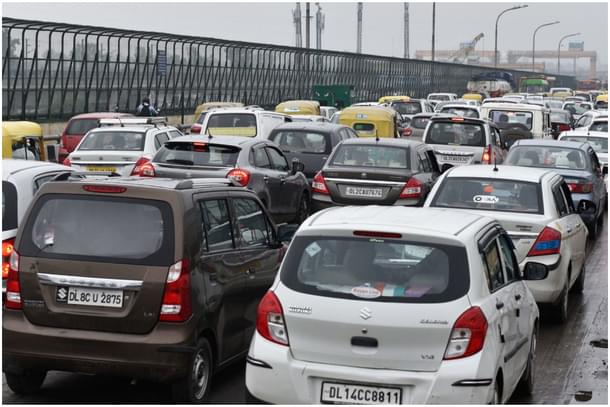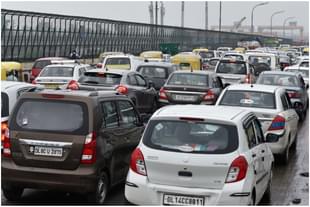News Brief
New Automobiles To Be Manufactured With 20 Per Cent Recycled Metals From Scrapped Vehicles From 2026: Environment Ministry
Arun Kumar Das
Aug 02, 2023, 09:27 AM | Updated 09:30 AM IST
Save & read from anywhere!
Bookmark stories for easy access on any device or the Swarajya app.


The Union Environment Ministry recently held a meeting on the issue where the draft plan of Extended Production Responsibility (EPR) for vehicle manufacturers was presented.
The automobile manufacturers will now have to mandatorily use 20 per cent recycled metals from scrapped vehicles in production of new ones from 2026-27 and subsequently 30 per cent from 2028-29.
As per the proposal of EPR Policy for vehicle manufacturers, which is in the works, the manufacturers will also be responsible for recycling a share of the vehicles they sell in the domestic market.
Currently, there are around 33 crore registered vehicles in India and annually another three crore are added. The government has come up with the policy for end-of-life of vehicles.
While at the national level, vehicles will be scrapped for failing in fitness tests, in Delhi-NCR the mandatory retirement age of vehicles is 15 years for petrol vehicles and 10 years for diesel-fueled ones.
As per the draft policy, the manufacturers and sellers will need to meet the EPR obligations, including the setting up of collection centres or their own authorised vehicle scrapping centres for vehicles that have reached their end of life.
The EPR mandates that recycling targets for producers will be for the total weight of ferrous and steel used in a vehicle. The automakers will need to get EPR certificates (in terms of kg) which will be equal to the weight of ferrous metal and scrap generated in kilogram units.
The policy will cover all categories of vehicles and both private and commercial ones.
According to sources, since some of the components of the scrap such as paints and parts of the batteries and other metals are hazardous in nature, the draft policy proposes that the Central Pollution Control Board can impose environmental compensation for this.
Sources added that the success of the EPR will mainly depend on the operationalisation of vehicle scrapping centres and automated testing stations (ATS).
Currently, there are only 31 registered vehicle scrapping facilities which are operational and another 29 are under the category of ‘approved only’. In the case of ATS, there are only 24 such facilities.





